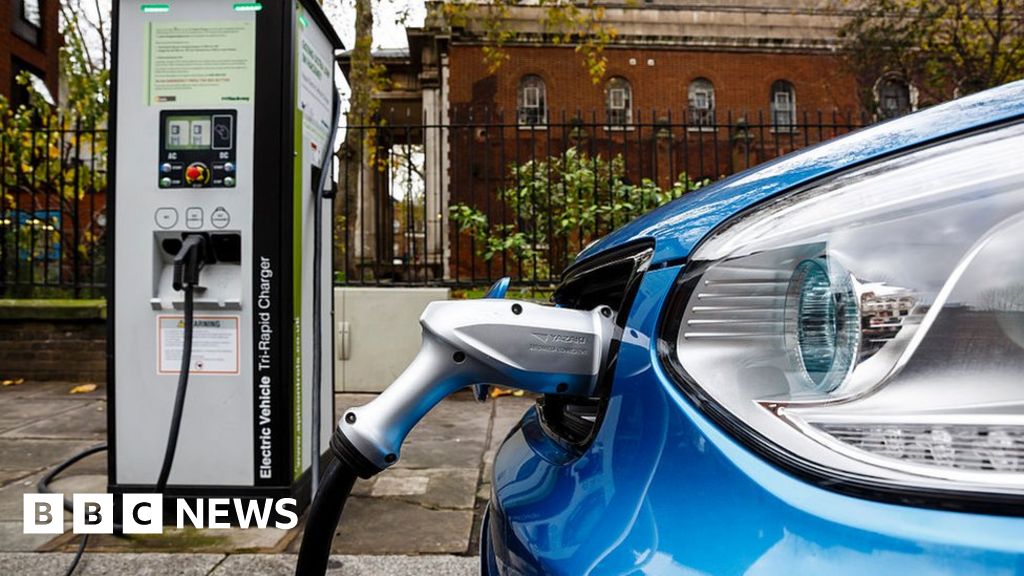Extra £14bn needed a year for climate, report says

An extra £14bn is needed each year to help the UK meet its climate commitments, a new think tank report suggests.
Green Alliance says the cash is needed for clean transport, nature restoration, and low-carbon buildings.
Over the past three years, it says that £9bn has been spent on projects that actually increase CO2, like roads.
It comes as large UK firms make a promise to «kick-start a new approach» and «put the environment first».
The Green Alliance think tank insists though that the funding issue must be solved in the prime minister’s economic recovery speech expected on Tuesday.
Its calculations are based on the government’s own assessment of major projects in the pipeline released on 16 June.
The government said it is determined to meet carbon targets, but the report draws attention to ministers’ plans to spend £28bn on roads.
Shift cash from roads
Green Alliance says they could close 60% of the disparity between high-carbon and low-carbon spending by shifting investment from roads towards non-polluting infrastructure such as bike lanes.
The authors cast doubt on whether the government should spend any more money at all on projects that increase CO2 emissions.
Chris Venables, head of politics at Green Alliance, said of Tuesday’s expected speech: «This is a once in a generation opportunity for the prime minister to create the foundations of a healthier, more resilient economy.
«For ‘Project Speed’ (the prime minister’s infrastructure review) to be successful, it must be the most ambitious climate infrastructure project ever, creating jobs in every corner of the UK.
«It can’t mean a bonfire of regulations locking in polluting activities for decades to come.”
The report supports analysis by the the Trades Union Congress defining the best value for money from job-creating schemes. Road-building was judged poorly.
The calculations judge projects based on jobs created per pound of public investment.
Best value projects
Best value are said to be: retrofitting buildings and creating cycle lanes, which are given a score of 20.
Electric ferries, battery factories and reforestation score 19; decarbonising industry, new electric UK buses, 18; and upgrading railways, installing electric vehicle chargers, and environmental restoration, 17.
Broadband expansion scores 15, but road-building, by comparison, scores just 10.
In a previous interview for BBC News, AA President Edmund King endorsed the role of broadband.
He told BBC News: «Arguably in future, we should invest more in broadband (than new roads), because what this crisis has shown is that the majority of companies can continue working from home, and it can be more efficient.»
Meanwhile, the government is facing legal action from a group complaining that road plans are incompatible with climate objectives.
Andrew Adonis, former head of the National Infrastructure Commission told BBC News: “We need to tackle bottlenecks in the road system but it is vital we promote a long-term shift to low carbon transport.
«The coalition agreement for the new Irish government includes a 2-1 split for all future transport capital spending to be on public transport and cycling rather than roads. We should consider doing the same in the UK.”
A government spokesperson said: “The prime minister has been clear that the UK should have the most ambitious environmental programme of any country on earth.
“The actions we are taking to achieve our zero emissions target will help to deliver a stronger, cleaner, more sustainable and more resilient economy after this pandemic – and already there are over 460,000 UK jobs in low carbon businesses and their supply chains.”
On Monday, more than 200 business leaders will meet with Business Secretary Alok Sharma and Environment Secretary George Eustice at a Council for Sustainable Business event.
FTSE 100 firms including Unilever, Standard Chartered and Direct Line will discuss measures that business can take to cut carbon emissions with ministers as they also try to deal with the fallout of the coronavirus crisis.
Attendees will be asked to show government that they are are keen to work with them on a «cleaner, greener, more resilient economic recovery post Covid-19».
Follow Roger on Twitter @rharrabin


